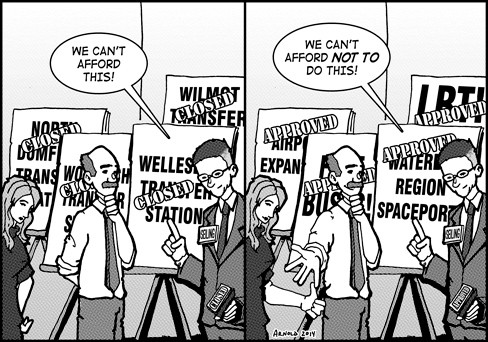;
;
;

In the business world, if you charge somebody for a service and don’t deliver, simply pocketing the money, it’s fraud. In the government world, if you charge somebody for a service and don’t deliver, simply pocketing the money, it’s, well, standard operating procedure. Take, for example, the region’
Last updated on May 04, 23
Posted on Jun 27, 14
2 min read
